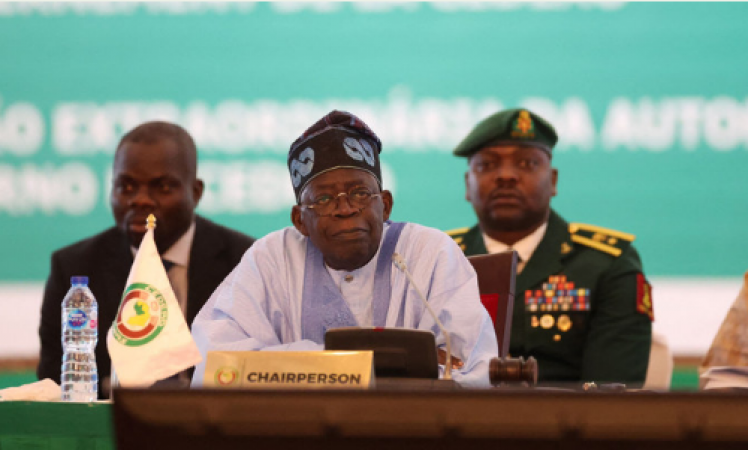
Niger: The president of Nigeria, Bola Tinubu, announced economic measures on Monday to ease the mounting hardship in the continent's most populous nation as labour unions threatened to stage protests to demand greater action.
Since taking office in May, Tinubu has implemented a number of government policies that have further strained the lives of millions of Nigerians. The government ended long-standing petrol subsidies that Tinubu claimed only benefited the wealthy, but the move has more than doubled petrol prices, leading to a sharp increase in the cost of food and other necessities.
The Nigerian president acknowledged that his country's economy is going through a "tough patch" in a late-night broadcast, but he added that the government has saved more than one trillion naira ($1.16 billion) since the subsidy was eliminated in late May. The subsidies' previous funding was "being funnelled into the deep pockets and lavish bank accounts of a selected group of individuals," the speaker continued.
Also Read: Women are "brutalised" by a warming world, and heat waves widen the gender gap
The Nigerian leader made the announcement as he announced incentives and credit facilities for businesses, many of which would be implemented over the next year. "What I can offer immediately is to reduce the burden our current economic situation has imposed on all of us," he said.
Many in the more than 210 million-person nation, which was already struggling with record inflation and poverty rates, have been squeezed by the hardship. In Nigeria, many businesses have closed and more people are walking to work because they cannot afford the rising transportation costs.
Also Read: Ukraine's Humanitarian Aid Appeal Faces Critical Shortfall: Only 30% of $3.9 Billion Target Reached
The labour unions in Nigeria said they would protest on Wednesday to demand more government action and better social welfare programmes for their members, the majority of whom they claimed now spend at least 70% of their salaries on transport. This is in contrast to the doctors in Nigerian hospitals going on strike to demand better welfare.
Tinubu acknowledged that the government had not moved quickly enough to implement measures to lessen the impact of the subsidy removal and urged citizens to exercise more patience.
"The federal government is working closely with states and local governments to implement interventions that will cushion the pains," he stated.
According to Tinubu, some of the interventions include giving 75 manufacturing companies each a $1.16 million credit line over the course of the following year and giving 125 billion naira ($145 million) in grants and loans to SME's and other unincorporated businesses.
The Nigerian president claimed that in order to stabilise food prices, he has ordered the distribution of 200,000 metric tonnes of grains to households throughout the nation, along with 225,000 metric tonnes of fertiliser, seedlings, and other inputs for farmers. He also promised to invest at least 200 billion naira ($232 million) in agriculture to support farming.
Additionally, Tinubu stated that the government and civil servants are still negotiating a new pay scale.